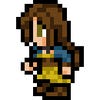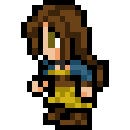
Featured Blog | This community-written post highlights the best of what the game industry has to offer. Read more like it on the Game Developer Blogs or learn how to Submit Your Own Blog Post
How To Prepare For Your First Game Expo
A checklist and summary of how to prepare and market your game for an expo.

They're exhausting and stressful, but I bloody love a good game show. Of course there's a lot to consider when you're organising your own booth; it can be overwhelming. So here's what I've learned from expos so far to prepare smoothly and get the most benefit from showing your game...
Goals
First off, what is it that you want to achieve from showing your game at an expo? Player feedback? Press coverage? Brand awareness? Sales? I strongly believe that for an indie game developer, short term sales from individual visitors should not be the primary goal of displaying your game at a show.
Just before exhibiting at Tokyo Game Show last year, I took part in a very useful Trade Show Initiative workshop with the DIT. The two lecturers were shocked that I wasn't tracking sales because I didn't see it as a goal. I learned something pretty useful that day - how to track conversion rates and activity during an expo, but I still stand by my original opinion despite that.
To me, there's a lot more potential in longer term, indirect sales achieved through good press coverage, and this deeper brand awareness should be what we're gunning for. But, I did take the advice I learned and I pushed individual sales, and tracked them too. I was on Tokyo Game Show with my leaflets like a NINJA. Apparently people are pretty hot on QR codes in Japan, so I made sure to use lots of QR codes linking to our store page on all our marketing literature.
How many scans did I track? 9... Nine scans from the two thousand leaflets we handed out. On top of this, our sales really did not change considerably during our time at the show, and definitely not enough to cover our exhibition costs. However... A few days after the show, Famitsu and 4Gamer published interviews with us and our sales increased 430%. It was a huge sales spike that paid for the show and left plenty of profit to spare. But more important than that, we made an impression in Japan and got our foot in the door.
So with that in mind, don't think of the little sales - think big!
Pre-show Marketing
On average, 75% of visitors at an exhibition will come with a short list of specific booths in mind to see. The most important part of exhibition marketing starts long before the show in order to entice these visitors. So, we need to reach out to new potential players, established fans, plus YouTubers and journalists (and maybe distributors or publishers). Here's a few ideas how:
Offer out a select number of invitation tickets (some events give these to developers, some don't) to your established fans as a super nice way to connect with your community.
Announce your presence and invite people to visit via various social media. Make sure to use the relevant show hashtags! Here you could even offer incentives to drop by such as competitions, discounts, freebies, special codes etc.
Work with the organisers to feature your game in their newsletters and announcements. Get your nag on. Naggers be winners.
Email attending press and invite them for a chat. You can ask the event organiser for a press list or, failing that, look up who attended in previous years. 60% of attendees are usually repeat visitors. Twitter is also a great way to connect with people before hand, especially by keeping a close eye on event hashtags.
Staff Prep
This is especially important if you're hiring interpreters, temporary booth staff or recruiting volunteers. Prepare yourself and your staff before the show, particularly the last two points for everyone:
Printing fact sheets with specific information for journalists is highly useful in encouraging coverage. Think of it like a press release including any key facts they might find relevant.
For any temporary staff in particular, send documentation in advance that outlines your product, the message you're trying to convey, objectives for the show, and any other key information such as dress code.
Keep a shared document to add feedback from player observation - features they struggle with, parts that turn them off, or things they particularly love. Any feedback you take away from this will be valuable in itself.
Prepare and memorise your elevator speech beforehand. Learn to summarise the key selling points of your game in a sentence or two. You want to tell people what makes your product different, as well as a precise call to action.
Make sure you have an easy way of recording leads - who they are, what to send them etc. Relying on random pocketed business cards alone can get very messy.
Follow up
90% of business secured from a show results from follow-up work in the immediate days after. Hopefully you're keeping records of your leads, right? Make sure to divide them into A (hot), B (warm) and C (cold). Contact all A's within 48 hours - the best results come from follow-ups made within 5 days. Personalise your email to them and jog their memory of who you are by reminding them of your conversation and offering them a code or something nice and special.
Banner
The best graphics attract attention and convey your message, instantly. A visitor should be able to understand what you're offering in three seconds, the time it takes them to walk by your booth. Keep this rule in mind when you're designing your banner as this could be your one chance to grab your audience.
Keep your branding consistent and make your graphics bold and eye-catching with simple messaging. Don't overuse text on your banner, the less you can use the better: just your title and maybe a sub-heading. Some might add a call to action, but at this stage we're just trying to attract initial interest; we can use flyers for the details.
Leaflets And Marketing Materials
I highly recommend getting some leaflets printed for your stand because: 1) You're going to get bored pitching to every single passer by real quick (queue no voice left on the second day of the expo); 2) Not everybody wants to hear your pitch. Casual punters can be put off and feel pressured to play your game (queue playing a game you don't like for 10 minutes just so you don't offend the overly keen developer lurking behind you); 3) Business cards are great and all for making an impression, but they can only hold so much info. Ever been to a networking event, only to get home and flip through the hundred cards in your backpack, scratching your head at who the hell some of them belong to? Or what their actual game was? Don't be one of those forgotten business cards.
Leaflets allow people to see what a game is for themselves, without committing to play it while the developer heavy breathes over their shoulders. Here are the key points to include on your leaflet designs:
Call to action. The most important point of all - where to purchase/ download or follow your game.
Pricing info, release date, platform.
Eye catching imagery that captures your game's message. Bonus points for a catchy line to draw people's attention.
A short description, one or two sentences long, that outlines features and what makes your game unique.
A varied selection of screenshot examples, if you can squeeze them in.
Review quotes, if any.
Trackable hashtags, QR codes, links, codes or discount coupons. Bonus points if you can encourage people to interact by tweeting their visit to your stand with your own hashtags.
And then of course there's your business cards. How many is always a tough question, but better to get too many than not enough. You can always use them again next time after all. I usually take about 200 cards and have plenty to spare, but the suave socialites might need more.
As for freebies, I'm not a huge believer in freebies being of much benefit. They're great for drawing attention to your stand, but no more than that if you're already on a tight budget. If your banner looks interesting enough and people want to play your game, they'll come to you, freebies or not.
Expo Checklist
I bloody love a good checklist. Seriously, this is just as much for my own benefit as it is anyone else's.
Hotels booked
Transport booked
Meetings scheduled
Leaflets and other promotional materials printed
Leaflets delivered to venue
Business cards printed
Banner submitted to organisers, or printed
All relevant forms and organiser documentation completed and submitted
Invitation tickets sent to fans
Uniforms designed and printed
Computers arranged or rental equipment booked
Playable demo ready for installation
Video game instructions printed
Fact sheets printed for press
Tools for affixing banners, game instructions, opening deliveries etc e.g. double sided tape, scissors
Lots of bottled water and breath mints!
Staff sent any relative information - copy of travel details, accommodation, show times, maps and expense claim info
Overseas Checklist:
Check staff have at least six months duration on their passport
Visas prepared (if required)
Travel insurance for all staff
Interpreter(s) booked
Research local customs and do's and don'ts
Marketing materials and announcements translated
Read more about:
Featured BlogsAbout the Author(s)
You May Also Like







.jpeg?width=700&auto=webp&quality=80&disable=upscale)








